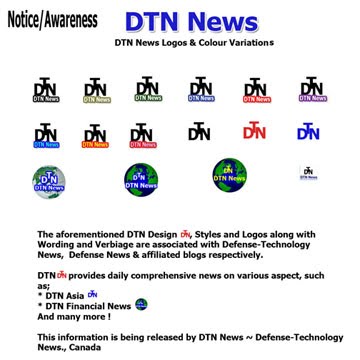(NSI News Source Info) TORONTO, Canada, November 13, 2011: President Barack Obama will announce an accord for a new and permanent U.S. military presence in Australia when he visits next week, a step aimed at countering China's influence and reasserting U.S. interest in the region, said people
 familiar with his plans.
familiar with his plans.The agreement will lead to an increase in U.S. naval operations off the coast of Australia and give American troops and ships "permanent and constant" access to Australian facilities, the people said. While no new American bases will be built under the plan, the arrangement will allow U.S. forces to place equipment in Australia and set up more joint exercises, they said.
The move could help the U.S. military, now concentrated in Japan and South Korea in Northeast Asia, to spread its influence west and south across the region, including the strategically and economically important South China Sea, which China considers as its sovereign territory.
It was unclear how much the new presence would cost the Pentagon, which is facing years and hundreds of billion dollars in spending cuts.
But the expanded military presence is designed as a demonstration of U.S. commitment to the region, part of an effort to refocus on Asia as the U.S. withdraws from Iraq and draws its forces down in Afghanistan, officials in both countries said.
"It will demonstrate U.S. resolve, not just for Australia, but in the region," Maj. Gen. Tim McOwan, the Australian defense attaché in Washington, said in an interview this week.
At a daily press briefing on Thursday, Foreign Ministry spokesman Hong Lei said Chinese officials "hope relevant countries' bilateral cooperation will be conducive to the Asia-Pacific region's security, peace and stability."
The strategy comes weeks after China sent its first its first aircraft carrier to sea, a defining moment in its effort to become a top-tier naval power that seeks to challenge U.S. military supremacy in Asia and protect Chinese economic interests that now span the globe.
Several Asian nations, fearful of the threat China poses, also are beefing up their arsenals, fearing that the U.S. security umbrella is being eroded by China's enhanced capabilities and possible U.S. defense cuts.
One base slated for the stepped-up American presence is in Darwin, on the country's north coast. Other locations are possible, including one near Perth, on the west coast, one person said.
"Strategically, we want to be able to reassure the rest of Asia that the American presence is still strong in the 21st century as China develops its force," said Ernie Bower, director of the Southeast Asia Program at the Center for Strategic and International Studies, a Washington think tank.
Officials declined to detail how many new troops or sailors would be part of the U.S. effort, or how many ships would be stationed in the area, ahead of Mr. Obama's announcement next week. Defense Secretary Leon Panetta, while traveling throughout the region last month, vowed an expansion in U.S. influence, but also declined to specify costs or force sizes.
An administration official said the stepped-up presence will be phased in over several years under the agreement. The deal isn't yet final and details could change.
On his trip, Mr. Obama will mark the 60th anniversary of the U.S.-Australian alliance with a speech to Parliament and a visit to a military base in Darwin, where he and Australian Prime Minister Julia Gillard will jointly address Australian troops.
Neither leader is expected to characterize the move as directly confronting the Chinese. But U.S. officials said one of the goals of Mr. Obama's Asia trip is to clarify free access to the South China Sea.
Mr. Panetta, after a meeting with the Australians in September, said that enhanced military cooperation would counter "threats and challenges" to come. "Security and prosperity of our two great nations depends on the security and prosperity of the Asia-Pacific region," he said.
The full range of U.S. naval ships is expected to rotate through the joint facilities, stopping for exercises as well as repairs and other shore work. Naval aircraft also will have access to a base in Darwin.
The increased U.S. presence will be a rotating force, one person said. In September, Australian Defence Minister Stephen Smith said the enhance cooperation would be "more ships in, ships out; more planes in, planes out; more troops in, troops out."
Gen. McOwan, the defense attaché, said the increase in U.S. naval operations will send a message to the Chinese that the U.S. is committed to defending the security of regional sea and air trade routes. The stepped-up American presence will reassure Australia and well as other countries in the region that the U.S. is engaged at a time when Chinese intentions are uncertain, he said.
Still, Gen. McOwan added that the American commitments Mr. Obama plans to announce are "not going to frighten the Chinese."
"It's more symbolic than real," he said.
—Julian E. Barnes,
Brian Spegele
*Speaking Image - Creation of DTN News ~ Defense Technology News
*This article is being posted from Toronto, Canada By DTN News ~ Defense-Technology News
Contact:
©COPYRIGHT (C) DTN NEWS DEFENSE-TECHNOLOGY NEWS
©COPYRIGHT (C) DTN NEWS DEFENSE-TECHNOLOGY NEWS
©COPYRIGHT (C) DTN NEWS DEFENSE-TECHNOLOGY NEWS
COPYRIGHT (C) DTN NEWS DEFENSE-TECHNOLOGY NEWS
COPYRIGHT (C) DTN NEWS DEFENSE-TECHNOLOGY NEWS
COPYRIGHT (C) DTN NEWS DEFENSE-TECHNOLOGY NEWS
COPYRIGHT (C) DTN NEWS DEFENSE-TECHNOLOGY NEWS






No comments:
Post a Comment